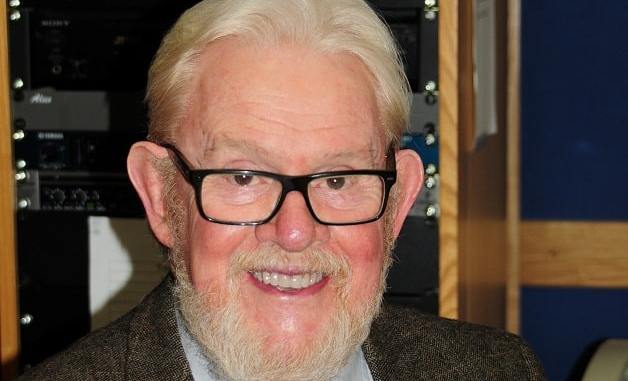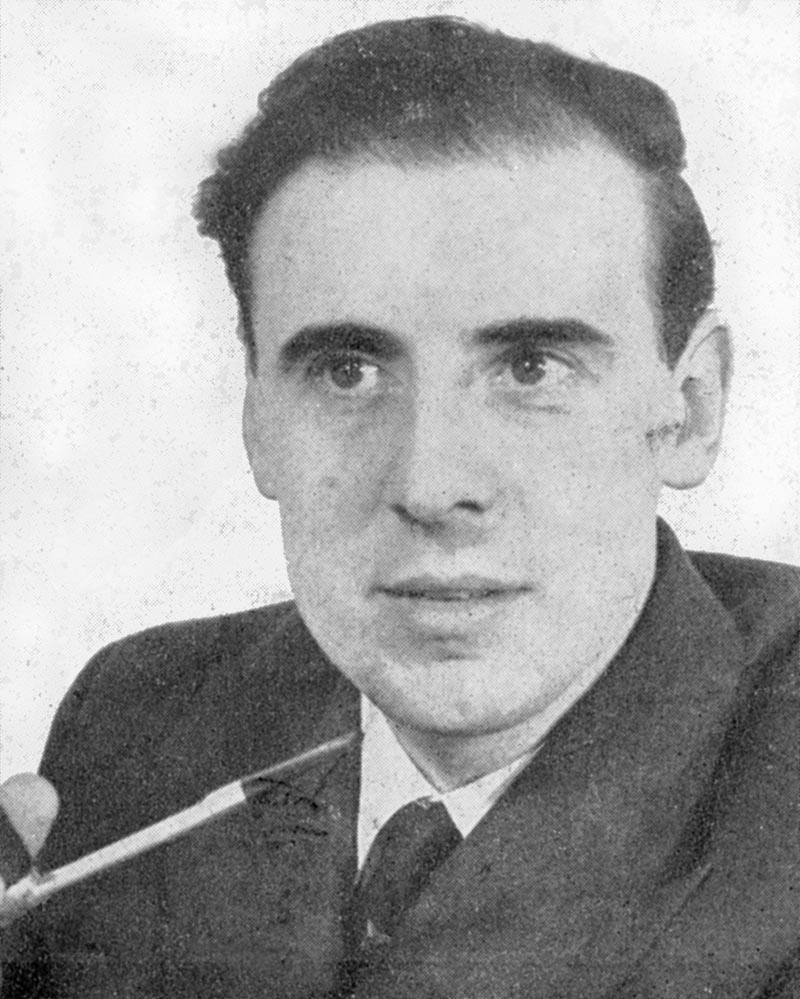Bill Pitt
for the Journal of Liberal History
 Bill Pitt, Photo: Isle of Thanet NewsMore personal obituaries of Bill Pitt are appearing in The Guardian and in Liberator. I am concerned here with the historical significance of the Croydon North West by-election on 22 October 1981 and of Bill's role in it. Bill was a long-serving, popular and convivial Liberal party member who was a member of a number of party committees. For a time he edited the party's internal briefing paper, Radical Bulletin. He was the prospective Liberal candidate for his home constituency of Croydon North-West which was, technically, a marginal Conservative seat with the Labour party almost but never quite succeeding in gaining it. By no stretch of the imagination could the Liberals have envisaged winning it in any "normal" circumstances, indeed Bill had lost his deposit at the previous, 1979, general election, though he polled 23% at the May 1981 Greater London Council election in the same constituency - a fact rarely acknowledged.
Bill Pitt, Photo: Isle of Thanet NewsMore personal obituaries of Bill Pitt are appearing in The Guardian and in Liberator. I am concerned here with the historical significance of the Croydon North West by-election on 22 October 1981 and of Bill's role in it. Bill was a long-serving, popular and convivial Liberal party member who was a member of a number of party committees. For a time he edited the party's internal briefing paper, Radical Bulletin. He was the prospective Liberal candidate for his home constituency of Croydon North-West which was, technically, a marginal Conservative seat with the Labour party almost but never quite succeeding in gaining it. By no stretch of the imagination could the Liberals have envisaged winning it in any "normal" circumstances, indeed Bill had lost his deposit at the previous, 1979, general election, though he polled 23% at the May 1981 Greater London Council election in the same constituency - a fact rarely acknowledged.
The Alliance between the SDP and the Liberal party was envisaged from the launch of the SDP in late March 1981 though not formally launched until the two parties' conferences that Autumn. Late in May 1981 Sir Tom Williams resigned his Warrington seat in order to become a High Court judge. The Liberals had always struggled to save their deposit in Warrington so it was perceived a good seat in which the SDP could test the water. Shirley Williams hesitated and eventually said "no", whereupon Roy Jenkins bravely stepped in and fought an excellent campaign, just failing to win by under 2,000 votes.
Robert Taylor, the Conservative MP for Croydon NW, died on 19 June 1981, just one month before the polling day in Warrington. The informal understanding between the Alliance parties was that they should take turns in fighting by-elections, hence Croydon was assumed to fall to the Liberals to fight. Immediately doubts were cast on this. First, Bill Pitt was thought to be a pedestrian candidate with a poor track record and incapable of winning. Second, Shirley Williams indicated her willingness to fight. Third, David Steel, as Liberal leader, indicated that he was in favour of Shirley being the candidate. Typically he failed to consult his party but tried to bounce it into accepting Shirley Williams. Steel always neglected the party which he did not rate as at all important1 and he paid the price on this occasion. The quarterly Liberal Party Council meeting in Abingdon passed a resolution overwhelmingly affirming the party's support for Bill Pitt as the by-election candidate. I met with David Steel the Tuesday after Abingdon and asked him what he intended to do. He replied, "I suppose I'll have to bow to democracy"! Had he chatted up the party immediately the seat became vacant and had he had a better relationship with it, he would have probably convinced it - and Bill Pitt - to give way. This incident rankled with Steel ever after.2
Bill duly continued as the candidate. Shirley Williams and the SDP loyally campaigned for him and he won a remarkable victory on 22nd October. The point was well made that if the Alliance could win a by-election in a Conservative-Labour marginal seat with a non-celebrity candidate it augured well for its electoral future. His tenure was shortlived and he lost the seat in May 1983. He moved to Kent and fought, unsuccessfully, Thanet South in 1987 and 1992. He then, somewhat perversely, joined the Labour party.
There was a sub-text to this whole episode. Some of us in the Liberal party were determined to protect the party against the SDP. In 1981 and early 1982 there was a real danger that the SDP would dominate the Alliance and, through by-election successes, run away with it to the detriment of the whole status and future of the Liberal party. Hard on the heels of the Roy Jenkins near-miss in Warrington, an SDP victory in Croydon would have provided a real springboard for other victories and the possible eclipse of the Liberal party. I was always immensely relieved that sitting Labour MPs who defected to the SDP did not resign and fight by-elections, starting with David Owen and Bill Rodgers, to be followed by each of the twenty-six further defectors. In my view Own and Rodgers would have won and created a real momentum for most of the rest. This was not simply a narrow loyalty to the Liberal party for the sake of it; my philosophical and policy reasons were set out in a booklet published at the time.3
There is also a postscript to Bill Pitts and Croydon by-election. On 1st October 1981 the MP for Crosby, Graham Page, died. In his chapter in the 2010 book 4 David Steel states that the Liberal candidate, Anthony Hill, "graciously stood down" for Shirley to fight and win the by-election. That is not the case. When the news of Page's death became public, the rolling SDP conference had reached Southport. I was talking to Anthony Hill, the prospective candidate for Crosby, in the bar adjacent to the conference hall when we heard Shirley Williams announce from the platform that she intended to fight the by-election. Anthony, a loyal Liberal of twenty years standing was simply pushed aside, but felt that it would be futile to try to "do a Croydon".
1 See Steel's autobiography, Against Goliath, Weidenfeld & Nicolson, 1989, p135.
2See his chapter in Making the Difference - Essays in honour of Shirley Williams, ed Andrew Duff, Biteback, 2010, page 69.
3 Social Democracy - Barrier or Bridge? Liberator Publications, 1981. (Available as a pdf via www.bramley.demon.co.uk/liberal.html).
4Ibid p 69.
 Geoff arrived on the local community scene some twenty-five years ago, just before I left Bradford CVS. He was an ideal voluntary organisation officer: intelligent, progressive, determined, comradely, patient - at least on the surface - and he wore a dog collar!
Geoff arrived on the local community scene some twenty-five years ago, just before I left Bradford CVS. He was an ideal voluntary organisation officer: intelligent, progressive, determined, comradely, patient - at least on the surface - and he wore a dog collar! North Yorkshire and former Leeds Councillor, Denis Pedder, has died in Humanby, North Yorkshire, at the age of 76. He had been suffering from cancer for some time. At the time of his death he was an Independent Councillor on the North Yorkshire County Council, representing the Cayton Division, and until his retirement last year had been a Scarborough District Councillor for the Hertford ward.
North Yorkshire and former Leeds Councillor, Denis Pedder, has died in Humanby, North Yorkshire, at the age of 76. He had been suffering from cancer for some time. At the time of his death he was an Independent Councillor on the North Yorkshire County Council, representing the Cayton Division, and until his retirement last year had been a Scarborough District Councillor for the Hertford ward. Jerry Pearlman practised as a solicitor in Leeds for sixty years and was one the best known and most popular lawyers in the city. He was particularly known for his dogged persistence in defending rights of way and in creating better access to the countryside. He played a significant role in the successful lobbying for the Countryside and Rights of Way Act 2000 which was the key legislation in creating access and the "right to roam." He and his wife, Bernice, were themselves great walkers and had a ready base with a cottage in the hamlet of Stalling Busk in Raydale, North Yorkshire. As a consequence of his notoriety as an environmental lawyer he ended up acting for campaigners he described as eccentric zealots with the potential to change the law. Three of these he described in his recent book Tales from an Environmental and Tribal Lawyer. He became deputy-chair of the Yorkshire Dales National Parks Authority, chair of the Yorkshire and Humber Regional Access Forum and an honorary vice-president of the Ramblers' Association.
Jerry Pearlman practised as a solicitor in Leeds for sixty years and was one the best known and most popular lawyers in the city. He was particularly known for his dogged persistence in defending rights of way and in creating better access to the countryside. He played a significant role in the successful lobbying for the Countryside and Rights of Way Act 2000 which was the key legislation in creating access and the "right to roam." He and his wife, Bernice, were themselves great walkers and had a ready base with a cottage in the hamlet of Stalling Busk in Raydale, North Yorkshire. As a consequence of his notoriety as an environmental lawyer he ended up acting for campaigners he described as eccentric zealots with the potential to change the law. Three of these he described in his recent book Tales from an Environmental and Tribal Lawyer. He became deputy-chair of the Yorkshire Dales National Parks Authority, chair of the Yorkshire and Humber Regional Access Forum and an honorary vice-president of the Ramblers' Association. Foster Lamb was born into a Liberal family and his father, Ernest Lamb, was Liberal MP for Rochester, 1906 to January 1910 and then December 1910 to 1918. Ernest subsequently joined the Labour party and was given a peerage in 1931, becoming Lord Rochester. Foster Lamb inherited the title in 1955 but despite his political heritage, he played no active part in politics until Geoff Tordoff (later Lord Tordoff) signed him up for the Liberal party in Northwich in 1962. The following year he began to contribute to debates in the House of Lords. He joined the National Liberal Club in 1963, remaining a member until 1974. He rejoined the Club in 1980 and was a Trustee from 1998 to 2006.
Foster Lamb was born into a Liberal family and his father, Ernest Lamb, was Liberal MP for Rochester, 1906 to January 1910 and then December 1910 to 1918. Ernest subsequently joined the Labour party and was given a peerage in 1931, becoming Lord Rochester. Foster Lamb inherited the title in 1955 but despite his political heritage, he played no active part in politics until Geoff Tordoff (later Lord Tordoff) signed him up for the Liberal party in Northwich in 1962. The following year he began to contribute to debates in the House of Lords. He joined the National Liberal Club in 1963, remaining a member until 1974. He rejoined the Club in 1980 and was a Trustee from 1998 to 2006.

